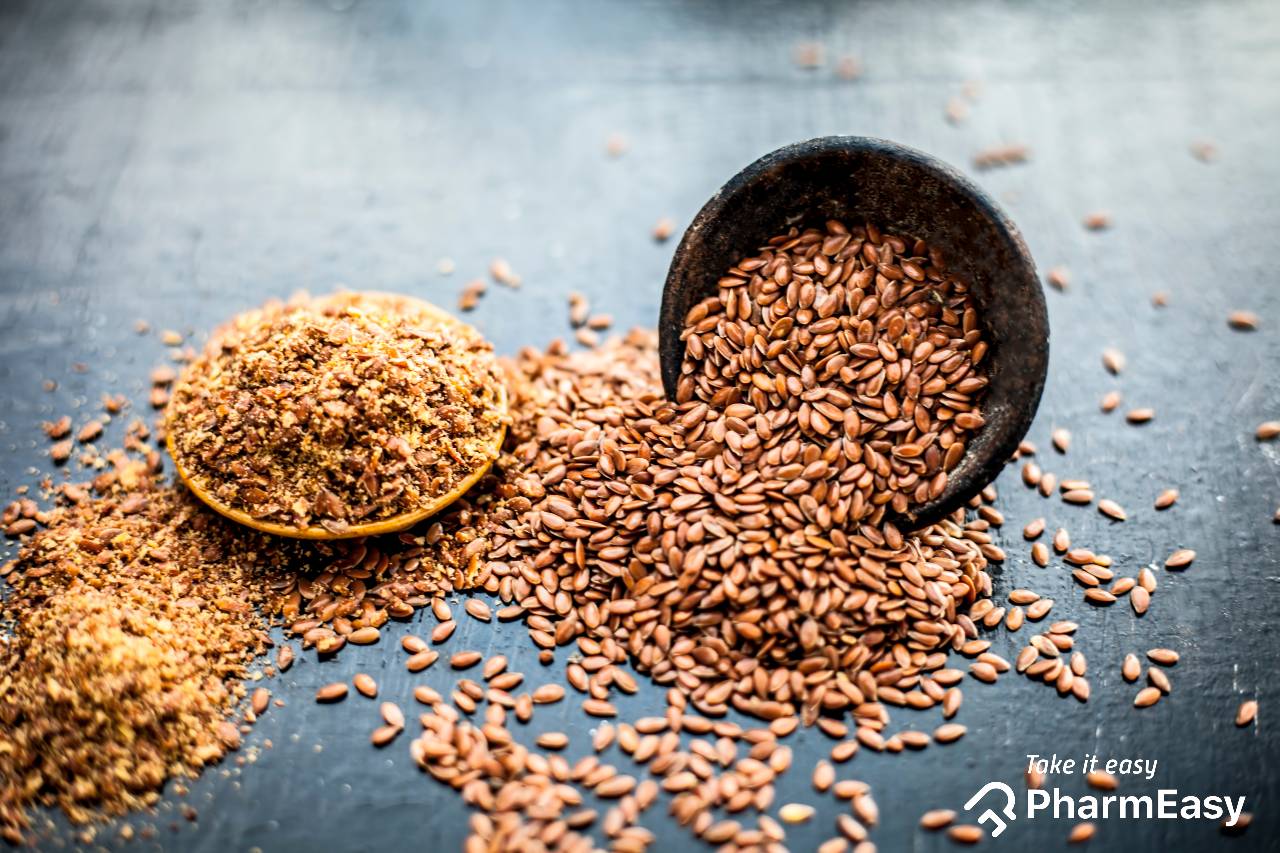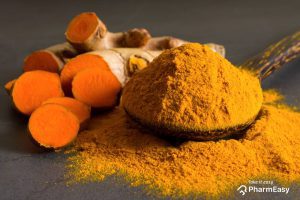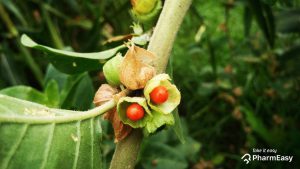Table of Contents
Introduction:
Flax (Linum usitatissimum) is an annual herb. Its seeds are around six mm long and oval-shaped, smooth, shiny and lenticular with golden-brown colour.1 Flax is also known as flaxseed when consumed by humans, while it is also known as linseed when we speak of its industrial application. In Indian languages, flax is known by several names such as Alsi, Jawas and Akse bija.2
Linum usitatissimum is the Latin name of the Alsi, which means ‘very useful’.2

Nutritional Value of Alsi:
Alsi is a good source of essential fatty acids and organic acids.1 It is also a rich source of dietary fibres, protein, antioxidants, vitamins E, K, C, B1, B3, B5, and B6.3 Alsi is also found to be an equally good source of minerals, such as magnesium, calcium, phosphorus, iron, zinc and some amount of sodium.4
| Nutrient | Percentage (%) |
| Fat | 41 |
| Protein | 20 |
| Total dietary fibre | 28 |
| Fatty acids | Percentage (%) |
| Saturated fat | 9.0 |
| Monounsaturated fat | 18.0 |
| Linoleic acid (omega-6 fatty acid) | 16.0 |
| α-Linolenic acid (omega-3 fatty acid) | 57.0 |
Therapeutic Uses of Alsi:
Alsi is studied for its antioxidant and cell rejuvenating properties. It has been used as a medicine for more than eight hundred decades.1 Various epidemiological and clinical studies have made it evident that the bioactive components of Alsi have the potential to limit several conditions like strokes, diabetes, cardiovascular ailments, cancer, etc.2
Even history has documented medicinal uses of Alsi. The father of medicine, Hippocrates, recommended Alsi seeds consumption to relieve abdominal pain in ancient Greek times.3
Also Read: Hadjod: Uses, Benefits, Side Effects & More!
Benefits of Alsi:
Lignans in Alsi seeds are a good source of soluble fibre and have diverse biological activities. Its derivatives get metabolised into the mammalian lignans.5 Alsi seeds comprise of rich amount of nutrients and provide several health benefits.2
1. Benefits of Alsi in Managing Lifestyle-Related Diseases:
Alsi contains polyunsaturated fatty acids and dietary fibre and is thus considered a favourable food that helps reduce the threat of lifestyle-related diseases.5
2. Benefits of Alsi due to Anti-Diabetic Functions:
According to studies, ingestion of Alsi seeds by healthy subjects improved peak values of glucose in them. Further, supplementation of lignan in the daily diet in type 2 diabetic patients resulted in low yet statistically significant advances in glycaemic control without any significant impact on lipid profile, fasting glucose, and insulin sensitivity.5
3. Benefits of Alsi in Managing Other Lifestyle-Related Diseases:
Alsi lignin reduces visceral and liver fat accumulation due to a high-fat diet. It improves hypercholesterolemia, hyperinsulinemia, hyperlipidaemia and hyperleptinemia. This ability of Alsi lignin may help in preventing obesity. Lignan present in Alsi has been studied to lower the relative risk factors for heart disorders associated with lifestyle diseases like diabetes, atherosclerosis and hypertension.5
Further, the studies on humans have demonstrated that Alsi seeds help in:5
- Reduction of some levels of serum total and low-density lipoprotein cholesterol concentrations.
- Reduction of postprandial glucose absorption.
- Lowering some markers of inflammation.
- Raising serum levels of the natural precursor of the cardioprotective fatty acids.5
4. Benefits of Alsi Due to Antioxidant Activity:
- Alsi seeds are loaded with antioxidants, which exist in lignans. This antioxidant activity is responsible for the ability of Alsi to prevent early skin ageing and pigmentation and to strengthen immunity.6
- The antioxidant property of Alsi seeds has been capable of reducing platelet aggregation and total cholesterol levels. The antioxidant activity is also suggested to be responsible for the hypoglycaemic effect in type-2 diabetes.5
5. Benefits of Alsi Due to Anti-Cancer Activity:
- Primary risk markers of mammary and colonic carcinogenesis have been demonstrated to be reduced by Alsi in animal models. Alsi seed lignans have been studied for their ability to reduce mammary tumour size in carcinogen-treated rats.5
- A study of the effect of Alsi consumption on cancer risk markers in humans demonstrated that eating Alsi seeds daily in diet stimulated various hormonal changes in the body related to the reduction of risk of breast cancer.5
6. Benefits of Alsi in Improving Bone Health:
The fatty acids of Alsi promote bone health by blocking excessive bone turnover.5
7. Benefits of Alsi in Managing Kidney Diseases:
As per studies in animal models, the derivatives of Alsi, such as oil and lax lignans, alter the development of renal conditions, like polycystic kidney disease. The studies are yet to confirm which component present in Alsi is responsible for its renal protective effect.5
8. Benefits of Alsi in Digestive Health:
- High soluble and insoluble dietary fibres present in Alsi help in the maintenance of regular bowel movements, thus controlling constipation.6
- Magnesium present in Alsi is responsible for relaxation of the digestive tract muscles and, therefore sustaining a healthy gut.6
9. Benefits of Alsi for Skin:
In Ayurveda, we find mentions of Alsi as Atasi, which has various beneficial properties for skin such as Picchaila (lubricous), Balya (improves tensile strength or elasticity of the skin), Madhura (balances the skin pH), Grahi (improves moisture holding capacity of skin), Vranahrit (wound healing), Tvagdoshahrit (removes skin blemishes). Alsi is also found to be helpful in Vata (skin) disorders such as undernourishment, lack of lustre/glow, dryness, etc.2
Benefits of Alsi in Managing Other Conditions:
- Alsi seeds have been indicated to deal with lupus.5
- It has been reported as a hepatoprotective agent.5
- Many explanations suggest that the bioactive components in Alsi seeds may play a role in hormonal metabolism.5
- Alsi oil is found to be effective in alcoholic liver diseases.1
- In a study on encephalopathic Wistar rats, positive effects of Alsi were observed in neonatal hypoxic-ischemic rats (a type of brain dysfunction that occurs when the brain doesn’t receive enough oxygen or blood flow for some time).1
| Compound | Health benefit reference |
| Omega 3-fatty acids | Anti-ulcer activity, anti-secretory effect, reno-protection in lupus nephritis, anti-atherogenic influence, decreased blood pressure, cardiovascular disease prevention. |
| Proteins | Influence on hypertriglyceridemia, diabetes mellitus, anti-hypertensive properties, neurodegenerative disease prevention, and control of blood pressure. |
| Dietary fibres | Decrease total cholesterol in the blood, hunger suppression |
| Micronutrients (vitamin E and minerals) | Promotion of sodium excretion, antioxidant properties, decrease blood pressure |
| Lignans | Control dyslipidemia, reduce breast cancer growth, effects on postmenopausal symptoms |
Also Read: Dashmularishta: Uses, Benefits, Side Effects & More!
How to Use Alsi?
Alsi can be added to the daily diet in a variety of ways, which include the following:
- Alsi seeds can be used in the grounded form and added to drinks like smoothies, milkshakes or as an ingredient for bakery products.6
- Whole flax seeds or flaxseed oil can also be used as a food supplement.2,6
- Flax seeds can be used to substitute eggs due to their gelatinous properties.6
Consult your Ayurvedic physician for advice on form and dosage as per your health condition.
Side Effects of Alsi:
Side effects of Alsi are:
- There are some anti-nutrients in Alsi seeds (whole and cold-pressed), such as cyanogenic glycosides, which may be responsible for adverse health effects.4
- The phytic acid content of Alsi may cause decreased absorption of nutrients such as calcium, zinc, magnesium, copper and iron.4,8
- The cyanogenic glycosides release hydrogen cyanide, a potent respiratory inhibitor.8
- Thiocyanates formed due to cyanogenic glycosides interfere with iodine uptake by the thyroid gland, and long term exposure may increase the risk of iodine-deficiency related disorders such as goitre and cretinism.8
- In women, abdominal bloating and mild diarrhoea may be observed as the side effects of Alsi.5
No confirmation on cyanide poisoning has been reported after Alsi consumption; still, we need to conduct more research on this subject.4
Precautions to Take With Alsi:
Keep the following points in mind:
- Although a review of the literature does not report any Alsi induced toxicity cases to date, we must consider warnings given due to anti-nutrition and cyanogenic glycosides present in Alsi until some proven scientific data is available against this belief.
- It is advised to roast Alsi seeds before ingesting them to remove cyanogenic glycosides.
- For safe consumption, Alsi may be consumed as milled flour after absolute heat treatment.
- Due to the hormonal effects of lignan, pregnant women and young men may experience side effects. You must take advice from your Ayurvedic physician regarding its consumption.
- Avoid consuming Alsi just before bedtime.4
Also Read: Nutmeg: Uses, Benefits, Precautions & More!
Frequently Asked Questions:
1) Can Alsi help in weight loss?
Yes, studies have shown that the high intake of dietary fibres is beneficial for the prevention of obesity in both men and women. Since Alsi is a rich source of dietary fibres, it may be helpful in preventing obesity.2
2) What contributes to the gel qualities of Alsi seeds?
Flax mucilage consists of three distinct types of arabinoxylans (non-starch polysaccharides), which form large masses in any solution and are responsible for its gel qualities.5
3) Are there any other known uses of Alsi?
Alsi was earlier used for the following other purposes:
- The fabrication of cloths and papers
- Flaxseed oil and its products are used in animal feed formulation.2
4) Is Alsi beneficial in regulating hormonal imbalance?
Yes, phytoestrogens, a lignan present in Alsi, help regulate hormonal imbalance.6
5) Where is Alsi found?
It thrives in deep moist soils rich in sand, silt, and clay. It is found in the region extending from the eastern Mediterranean to India through Western Asia and the Middle East.7
Also Read: Jamun: Uses, Benefits & Side Effects
References:
- Saha S, Pal D. Impact Of Flax On Metabolic Syndrome And Related Environmental Factors. IJPSR, 2022; Vol. 13(2): 531-542. Available from: https://www.researchgate.net/profile/Supriyo-Saha-2/publication/358235694_IMPACT_OF_FLAX_ON_METABOLIC_SYNDROME_AND_RELATED_ENVIRONMENTAL_FACTORS/links/61f7d1b8007fb504472920e7/IMPACT-OF-FLAX-ON-METABOLIC-SYNDROME-AND-RELATED-ENVIRONMENTAL-FACTORS.pdf
- Anurag AP, Prakruthi M, Mahesh MS. Flax Seeds (Linum usitatissimmum): Nutritional composition and health benefits. IP Journal of Nutrition, Metabolism and Health Science. 2020 Aug 15;3(2):35-40. Available from: https://www.jnmhs.com/html-article/11865
- Pareek A, Singh N. Seeds as Nutraceutical, their Therapeutic Potential and their Role In Improving Sports performance. J. Phytol. Res. 34 (2): 127-138, 2021. Available from: https://jphytolres.org/system/files/old_papers/3.%20Neha%20pdf.pdf
- ArslanoÄŸlu S, Aytac S. The important of flax (Linum usitatissimum L.) in terms of health. International Journal of Life Sciences and Biotechnology. 2020;3(1):95-107. Available from: https://dergipark.org.tr/en/download/article-file/995886
- Katare C, Saxena S, Agrawal S, Prasad GB, Bisen PS. Flax seed: a potential medicinal food. J Nutr Food Sci. 2012;2(1):120-7. Available from: https://www.researchgate.net/profile/Prakash-Bisen/publication/224889754_Flax_Seed_A_Potential_Medicinal_Food/links/0912f4ff4ee48d4d4e000000/Flax-Seed-A-Potential-Medicinal-Food.pdf
- Aga Khan University Hospital, Karachi. Flax Seed – A Super Food; Issue 1. Nutrition Update. Book 35. 2018. Available from: https://ecommons.aku.edu/cgi/viewcontent.cgi?article=1034&context=nutrition_update
- Bernacchia R, Preti R, Vinci G. Chemical composition and health benefits of flaxseed. Austin J Nutri Food Sci. 2014;2(8):1045. Available from: https://zellavie.ch/wp-content/uploads/2019/01/fulltext_ajnfs-v2-id1045.pdf
- Gutte KB, Sahoo AK, Ranveer RC. Bioactive components of flaxseed and its health benefits. International Journal of Pharmaceutical Sciences Review and Research. 2015 Mar;31(1):42-51.
Also Read: Nagarmotha: Uses, Benefits, Side Effects & More!
Disclaimer:
The information provided here is for educational/awareness purposes only and is not intended to be a substitute for medical treatment by a healthcare professional and should not be relied upon to diagnose or treat any medical condition. The reader should consult a registered medical practitioner to determine the appropriateness of the information and before consuming any medication. PharmEasy does not provide any guarantee or warranty (express or implied) regarding the accuracy, adequacy, completeness, legality, reliability or usefulness of the information; and disclaims any liability arising thereof.
Links and product recommendations in the information provided here are advertisements of third-party products available on the website. PharmEasy does not make any representation on the accuracy or suitability of such products/services. Advertisements do not influence the editorial decisions or content. The information in this blog is subject to change without notice. The authors and administrators reserve the right to modify, add, or remove content without notification. It is your responsibility to review this disclaimer regularly for any changes.



 By
By 










Comments